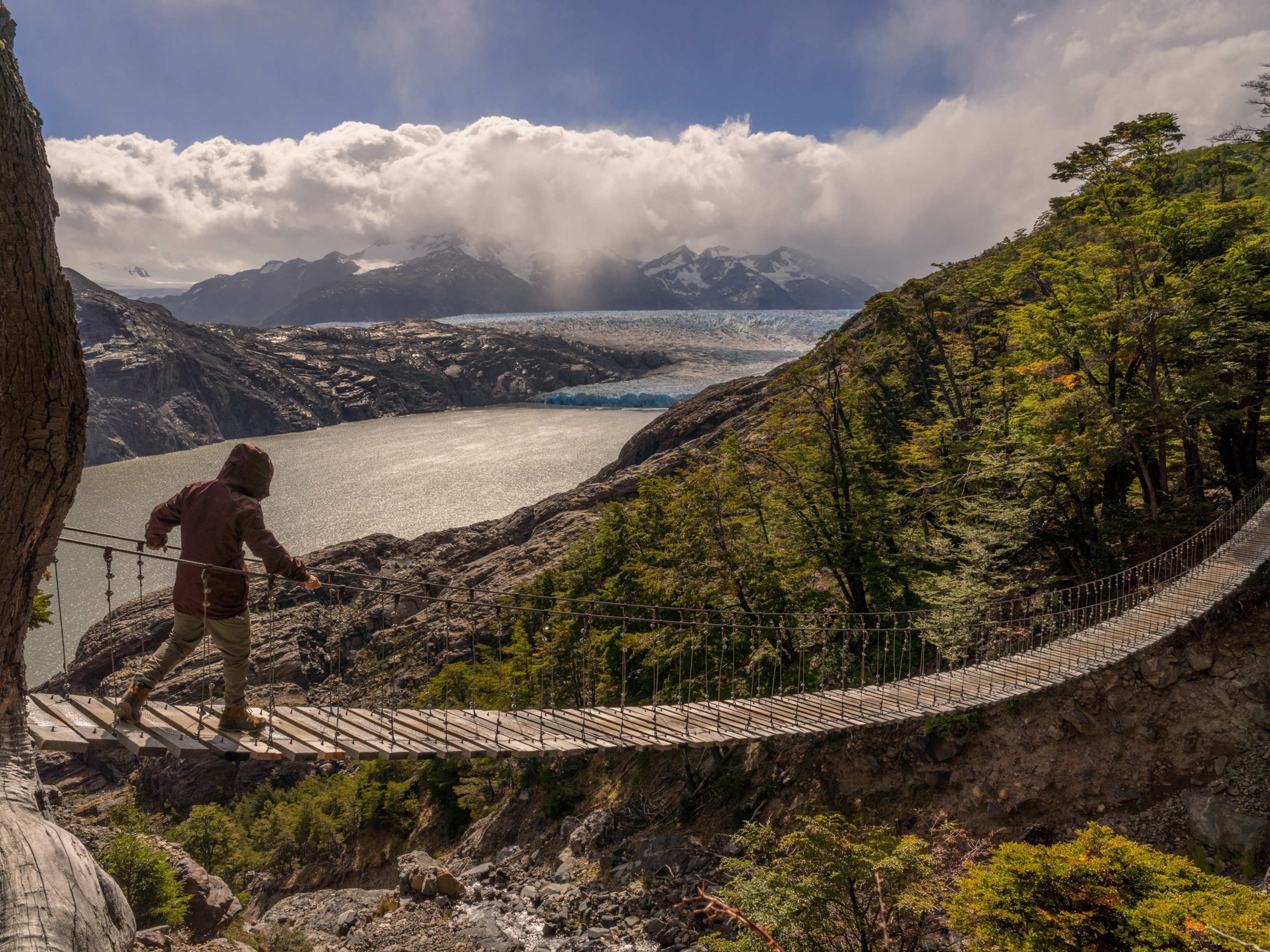Whale Allegedly Protects Diver From Shark, But Questions Remain
Video shows what one biologist considers to be altruism, but other scientists remain skeptical.
For 28 years, Nan Hauser has been researching and diving with whales. The biologist is the president and director of the Center for Cetacean Research and Conservation, a group that has researched everything from the population status to feeding behaviors of these animals.
But during a trip to look at whales in the Cook Islands in the South Pacific last September, Hauser says she had an encounter unlike any she had experienced before.
A humpback whale, a marine mammal capable of weighing 40 tons and growing 60 feet long, swam toward Hauser. For ten minutes, it nudged her forward with its closed mouth, tucked her under its pectoral fin, and even maneuvered her out of the water with its back.
At the time, Hauser was frightened by the encounter and unsure of what to do and what the whale was intending.
"I was prepared to lose my life," she says. "I thought he was going to hit me and break my bones."
In addition to conducting research, Hauser says she was also in the Cook Islands to work on a nature film, so at the time the whale approached, both she and a fellow diver were armed with cameras. Hauser's point-of-view footage shows just how persistently the whale nudged her. A second whale can also be seen lurking just behind the first.
When she finally made it out of the water and up onto her boat—bruised and scratched from the barnacles on the whale—Hauser saw a third tail moving from side-to-side.
"I knew that was a tiger shark," she says.
Now, after viewing the footage and reflecting on the whole harrowing experience, Hauser concludes that the whale who nudged her likely exhibited an extraordinary example of altruism.
"Maybe the shark wasn't going to attack me," she says, "but he [the whale] was trying to save my life."
A History of Interactions
Hauser's retelling isn't the first time scientists have questioned whether humpback whales can show signs of altruism. A 2016 study in the journal Marine Mammal Science looked at 115 instances from the past 62 years in which humpbacks interfered with a pod of hunting orcas.
Banding together, humpbacks were seen effectively protecting their calves. But there were also examples of humpbacks showing the same behavior to protect other species of whales, seals, and sea lions.
The study concluded that, "Interspecific altruism, even if unintentional, could not be ruled out."
Scientists have a number of theories for why whales exhibit this type of behavior, a 2016 National Geographic article on the study noted.
Humpbacks could be protecting kin at weaker life stages; they might be remembering past personal attacks; they could simply be responding to auditory distress calls—even from other species—or, perhaps it's altruism.
But Is it Really Altruism?
Martin Biuw from the Institute of Marine Research in Nowary is skeptical of Hauser's claim that altruism is at play in the video. Hauser had speculated the whale was male, but Biuw believes it appears to be a female.
"If that is the case, it is possible that she may show protective behavior towards a human (or other animal for that matter) if she has for instance recently lost her calf," he says.
Biuw explained that hormonal changes could have spurred the whale to show protective behavior.
Photos of Whales Around the World

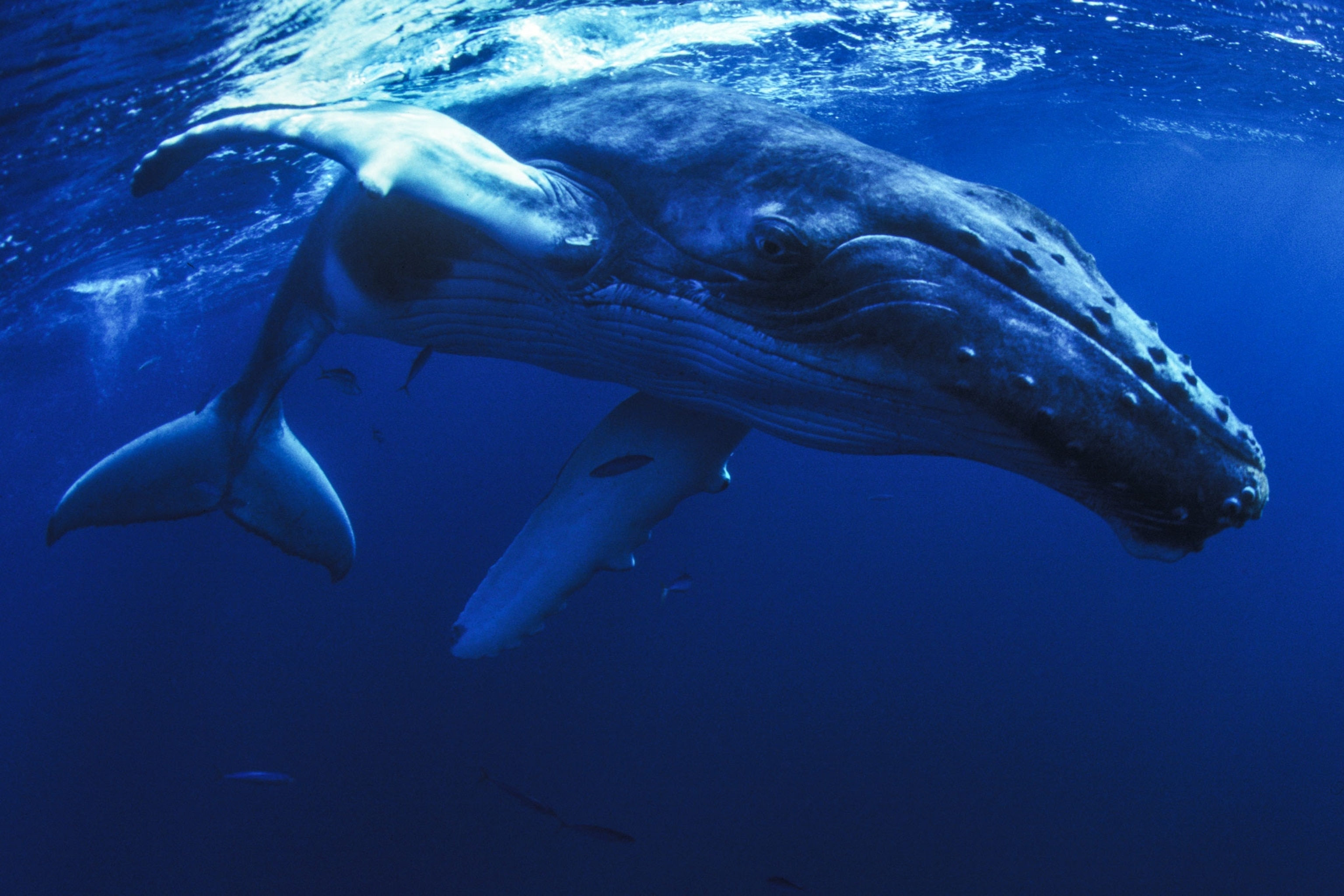

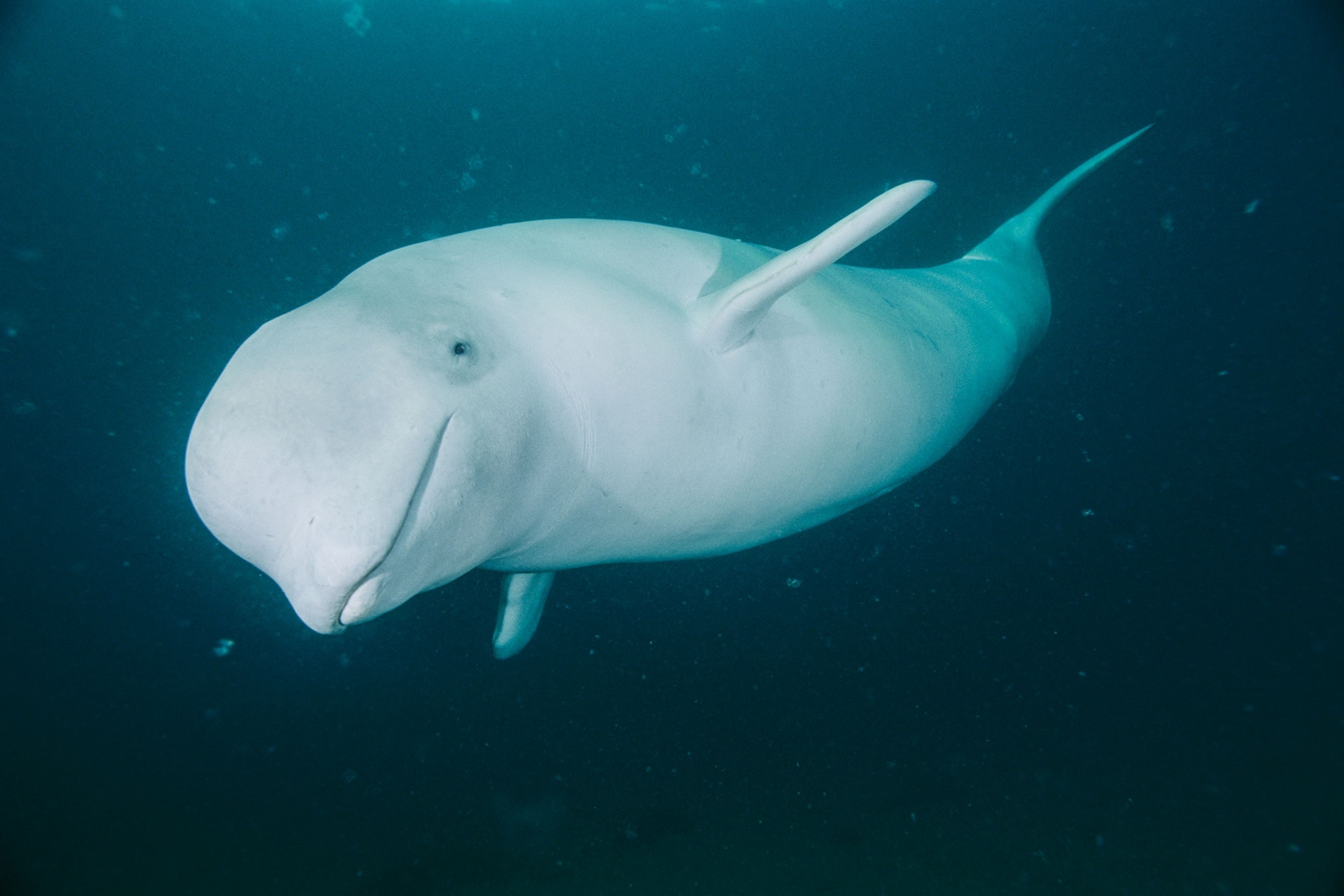

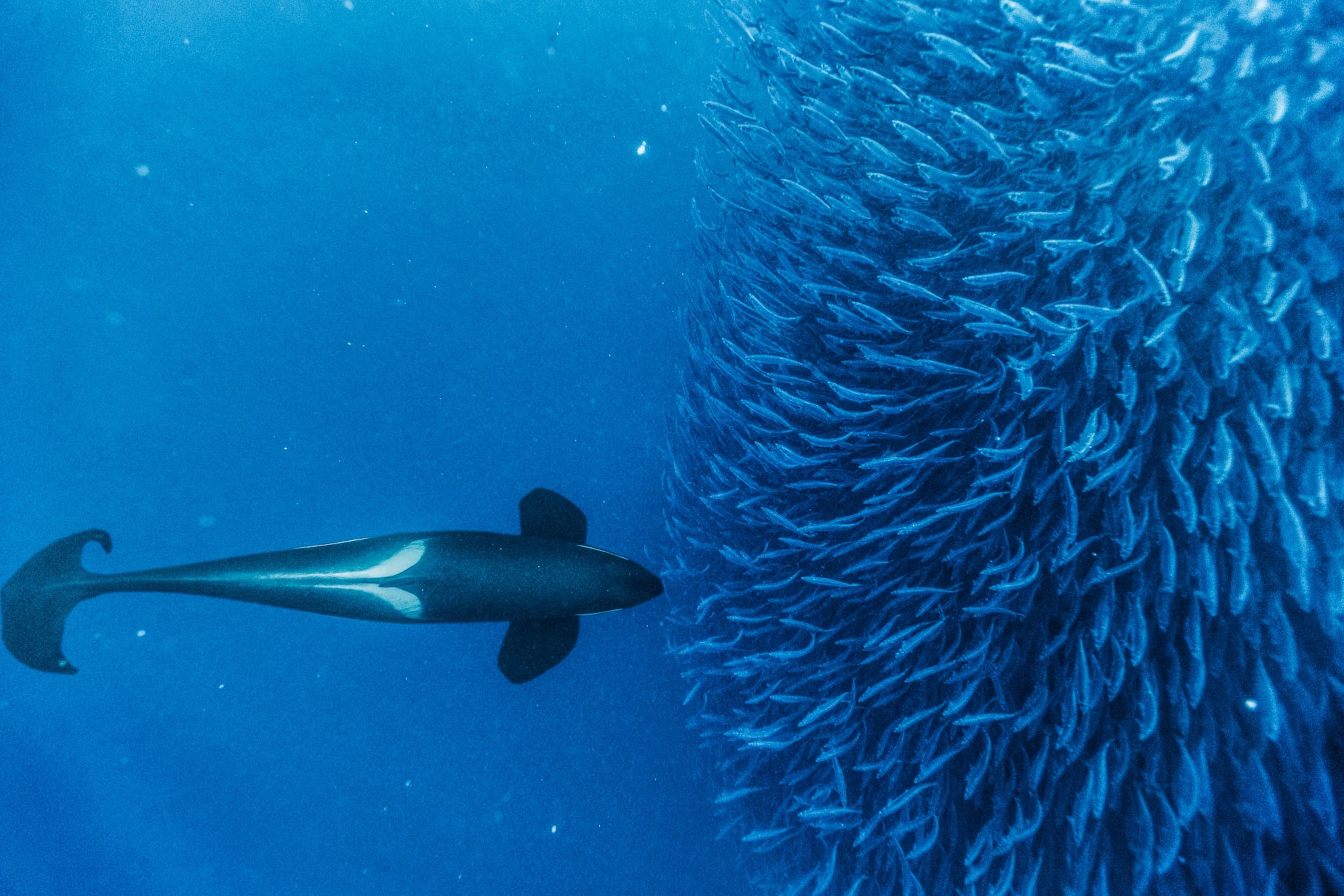
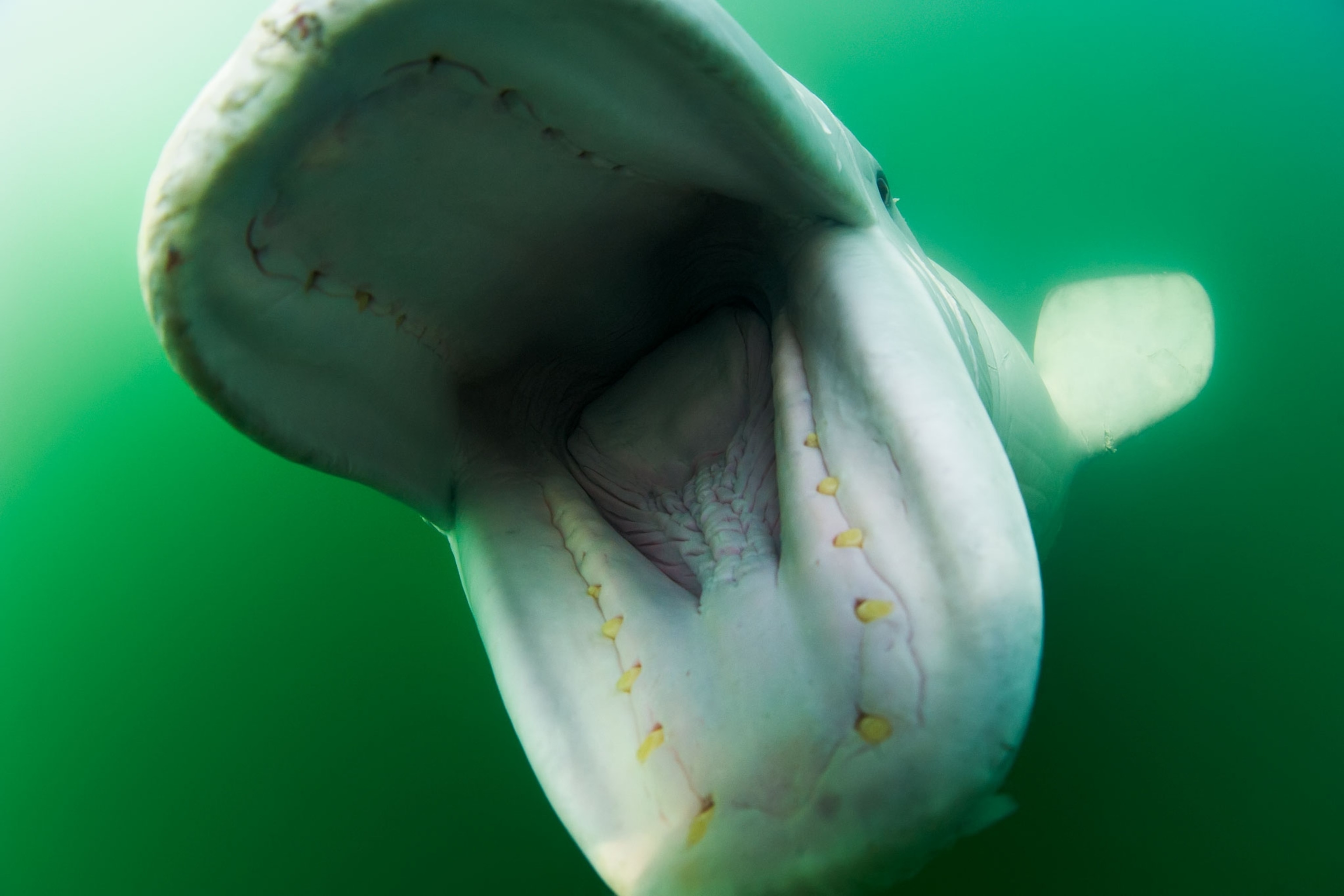
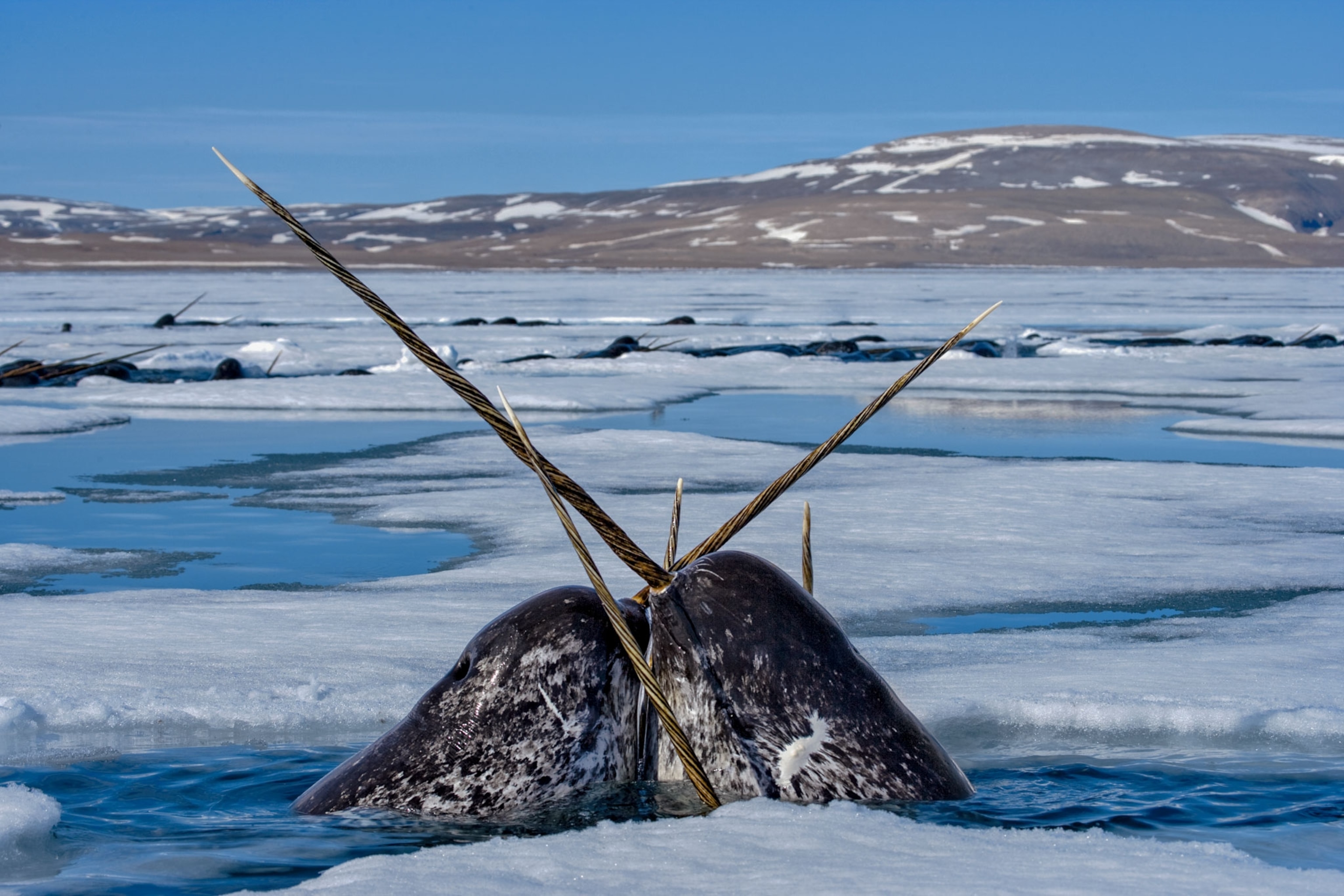




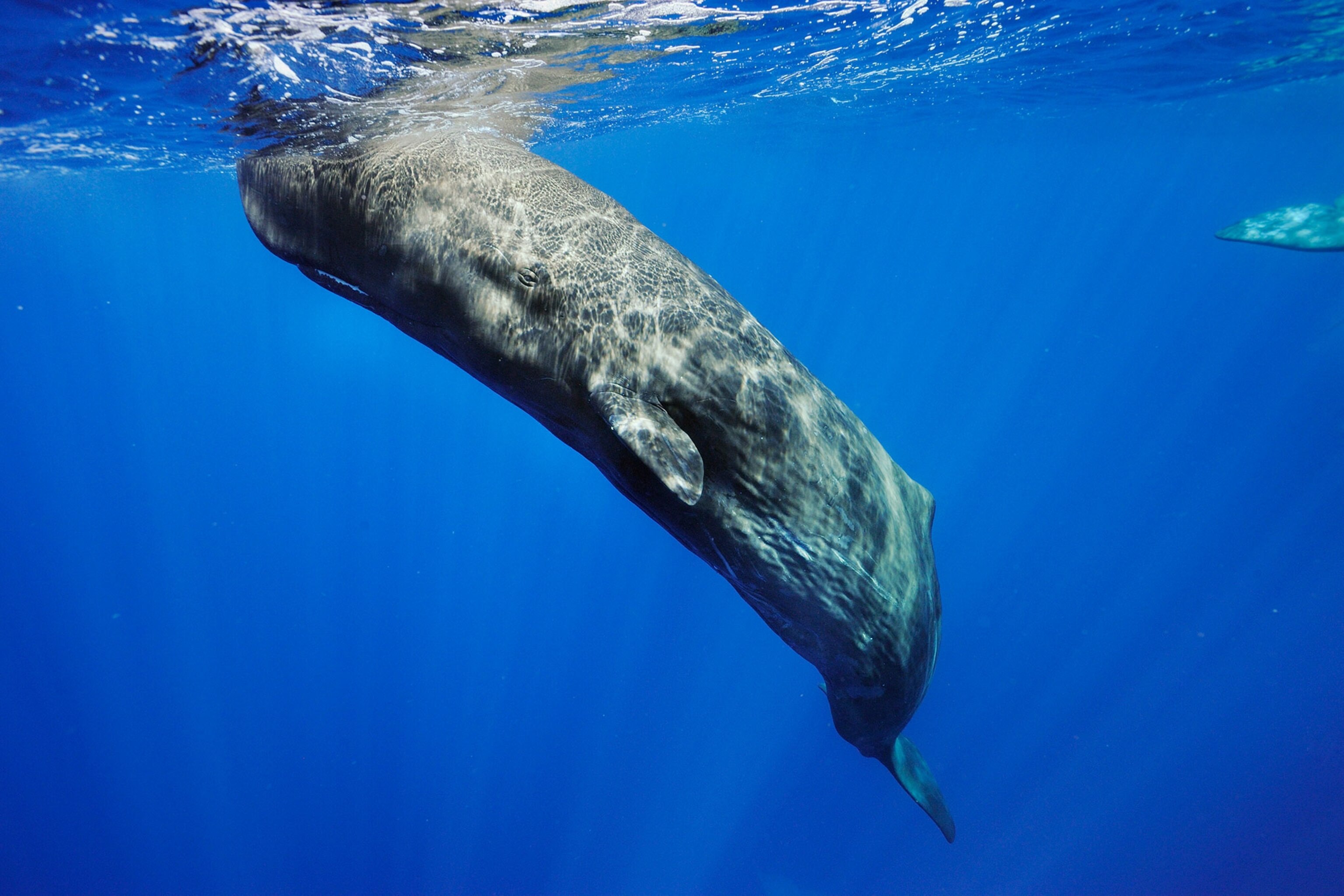

"In any case, even if the situation on the ground suggested to the observers that there was an altruistic behavior going on, I really cannot see any evidence of that in this video," he says.
Jim Darling, a humpback whale researcher from Whale Trust Maui, didn't see any obvious signs the whale was protecting Hauser from the shark, based on the footage he saw, but he did not discount Hauser's account. He noted that whales engaging in friendly contact with divers or boats does happen, but that without more information it's impossible to know what the whale was thinking or if it would have acted the same way without the shark present.
In response to skeptical voices, Hauser says, "I'm a scientist, and if anyone told me this story, I wouldn't believe it." But having lived through it, she's convinced.
Related Topics
You May Also Like
Go Further
Animals
- Behind the scenes at America’s biggest birding festivalBehind the scenes at America’s biggest birding festival
- How scientists are piecing together a sperm whale ‘alphabet’How scientists are piecing together a sperm whale ‘alphabet’
- Orangutan seen using plants to heal wound for first timeOrangutan seen using plants to heal wound for first time
- What La Palma's 'lava tubes' tell us about life on other planetsWhat La Palma's 'lava tubes' tell us about life on other planets
Environment
- The northernmost flower living at the top of the worldThe northernmost flower living at the top of the world
- This beautiful floating flower is wreaking havoc on NigeriaThis beautiful floating flower is wreaking havoc on Nigeria
- What the Aral Sea might teach us about life after disasterWhat the Aral Sea might teach us about life after disaster
- What La Palma's 'lava tubes' tell us about life on other planetsWhat La Palma's 'lava tubes' tell us about life on other planets
- How fungi form ‘fairy rings’ and inspire superstitionsHow fungi form ‘fairy rings’ and inspire superstitions
History & Culture
- This thriving society vanished into thin air. What happened?This thriving society vanished into thin air. What happened?
- These were the real rules of courtship in the ‘Bridgerton’ eraThese were the real rules of courtship in the ‘Bridgerton’ era
- A short history of the Met Gala and its iconic looksA short history of the Met Gala and its iconic looks
Science
- Why trigger points cause so much pain—and how you can relieve itWhy trigger points cause so much pain—and how you can relieve it
- Why ovaries are so crucial to women’s health and longevityWhy ovaries are so crucial to women’s health and longevity
Travel
- The key to better mindfulness may be your public gardenThe key to better mindfulness may be your public garden
- How to spend a weekend in Kitzbühel, Austria
- Paid Content
How to spend a weekend in Kitzbühel, Austria - What it's like trekking with the Bedouin on Egypt's Sinai TrailWhat it's like trekking with the Bedouin on Egypt's Sinai Trail




